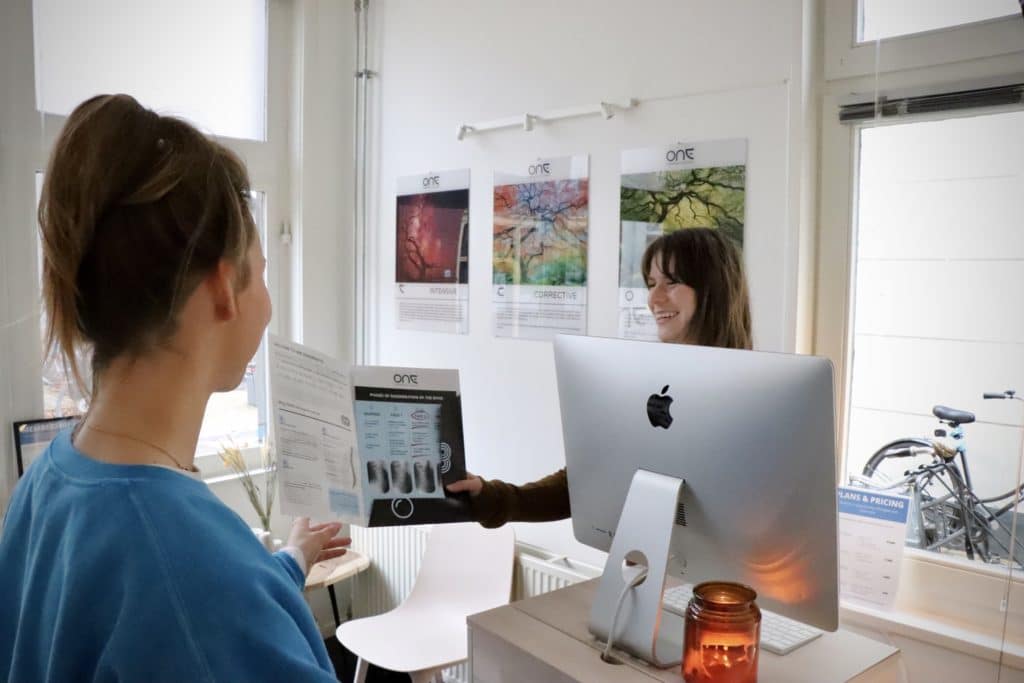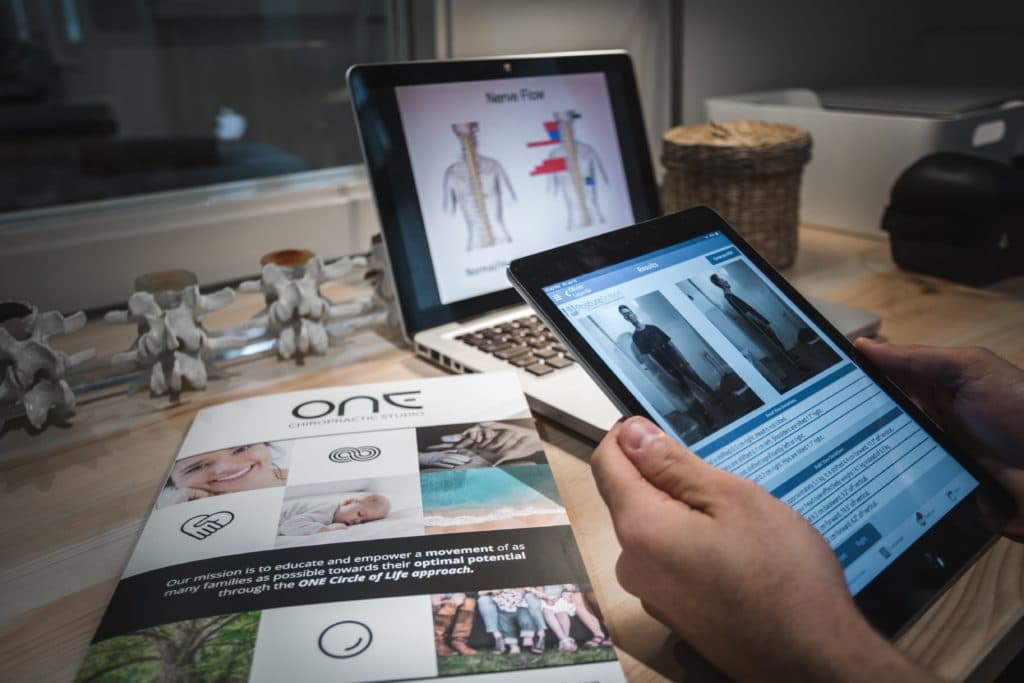What happens to your body when you sit too long?
The effects of sitting too long
We’re all familiar with sitting behind a desk for an entire day. But have you ever thought of the effects that sitting all day can have on your body? In this blog, we’ll explain more about the effects this can have on your body.
Your muscles and the nervous system
Sitting, standing and moving seems so easy, but there are over 700 muscles attached to your skeletal system, which are all controlled by your nervous system. And even when you sit, you use your muscles. Your core consists of your abdominal muscles in the front, obliques on the sides, erector spine, psoas and glutes in the back and diaphragm. They all work together to balance and stabilize the body during sitting and standing.
 Our brain switches off muscles
Our brain switches off muscles
Did you know that sitting too long switches off some muscles, whilst making others work harder? Our brain has a principle called “use it or lose it”, which means that if you are not using a specific function like a muscle, your brain will re-purpose that power to something else that you actually are using. An article by ESA (European Space Agency) showed that as a result of not moving, your back muscles are switched off, psoas muscles are working harder, which in their turn resulted in a decrease in disc height, and increasing of lower back pain with adults. But what does that mean for you when you’re sitting for longer periods? Well, let’s take an average person at a desk job. Sitting 8 hours a day, watching 2 hours of TV and sleeping for 8 hours. That’s 18 hours of not using your muscles. So for 18 hours during the day, your core has switched off because you are not moving. What health effects could that have for you?
Health effects of sitting too long
Lack of core stability is a major contributor to lower back pain and increases the chances of injury. Because, if you are not moving, the discs between your spine get smaller and your muscles get tighter and switched off from not moving. So when this happens and for instance you suddenly have to run to catch a train, guess what happens? Your back is exposed to injury, because the muscles are not protecting your spine properly anymore.
 How to prevent back pain
How to prevent back pain
As chiropractors, we specifically deal with the health of the spine and the nervous system. Chiropractic care can alter and enhance muscle functioning. Adjusting dysfunctions in the spine can improve function, decrease injury, improve core stability and increase the brains’ control of the muscles. The ability to activate the core muscles appropriately is essential for lower back health.
So, what can you do at home and work? Easy: move as much and often as you can. Strengthening your core muscles helps to protect your spine. Focus on your posture and do exercises. And most importantly; go see your chiropractor regularly for a balanced spine.
Ready to see what we can do for you back? Schedule your first consult and we’ll start with a personal examination and treatment plan.
References
- Tortora GJ, Grabowski SR. Princeiples of Anatomy and Physiology. 8th ed. Harper Collins College Publishers; 1996.
- Borghuis, J., Hof,A. L.,& Lemmink, K. A. (2008).The importance of sensory-motor control in providing core stability. Sport medicine, 38(11), 893-916.
- Doige, N. (2007). The brain that changes itself. New York: Viking, 6.
- Hides, J. A., Lambrecht, G., Richardson, C. A., Stanton, W. R., Armbrecht, G., Pruett, C., … & Belavý, D. L. (2011). The effects of rehabilitation on the muscles of the trunk following prolonged bed rest. European Spine Journal, 20(5), 808-818.
- Haavik, H. (2014). The reality check. A quest to understand chiropractic from the inside out. Haavik research-heidihaavik.com


 Our brain switches off muscles
Our brain switches off muscles How to prevent back pain
How to prevent back pain

